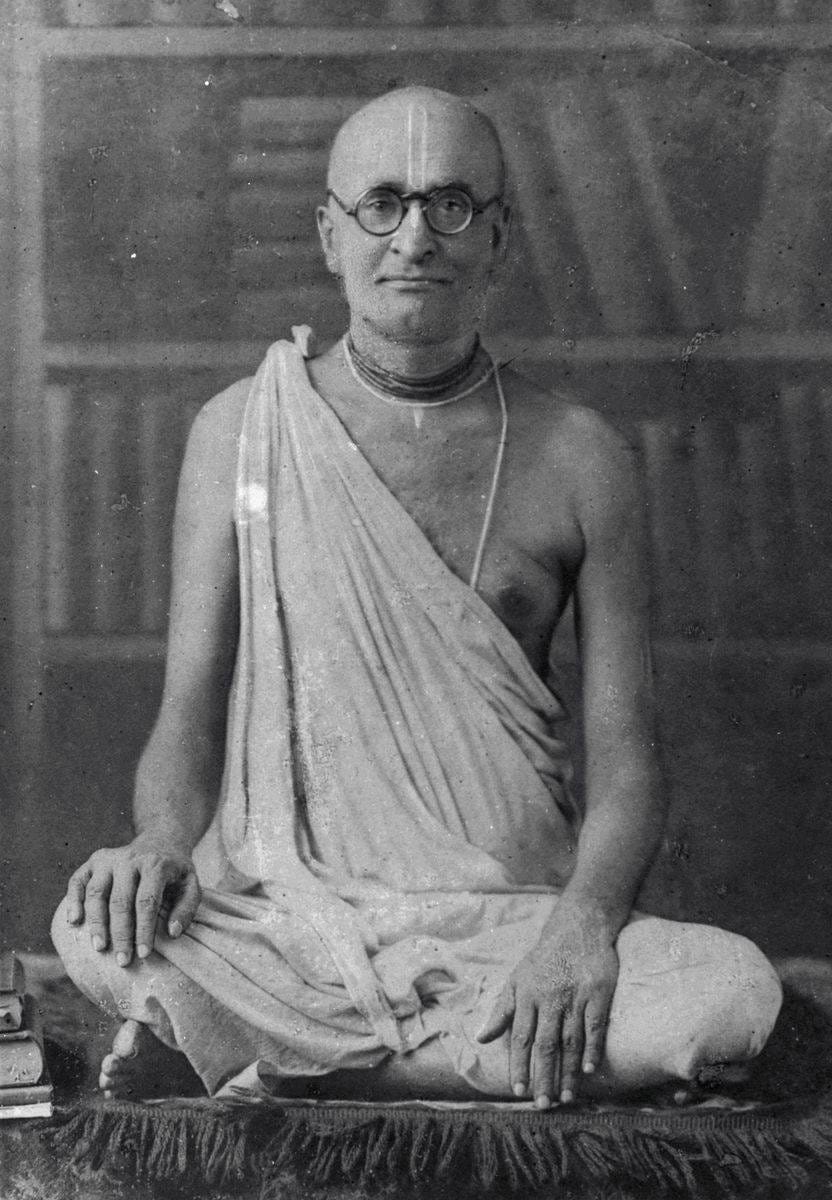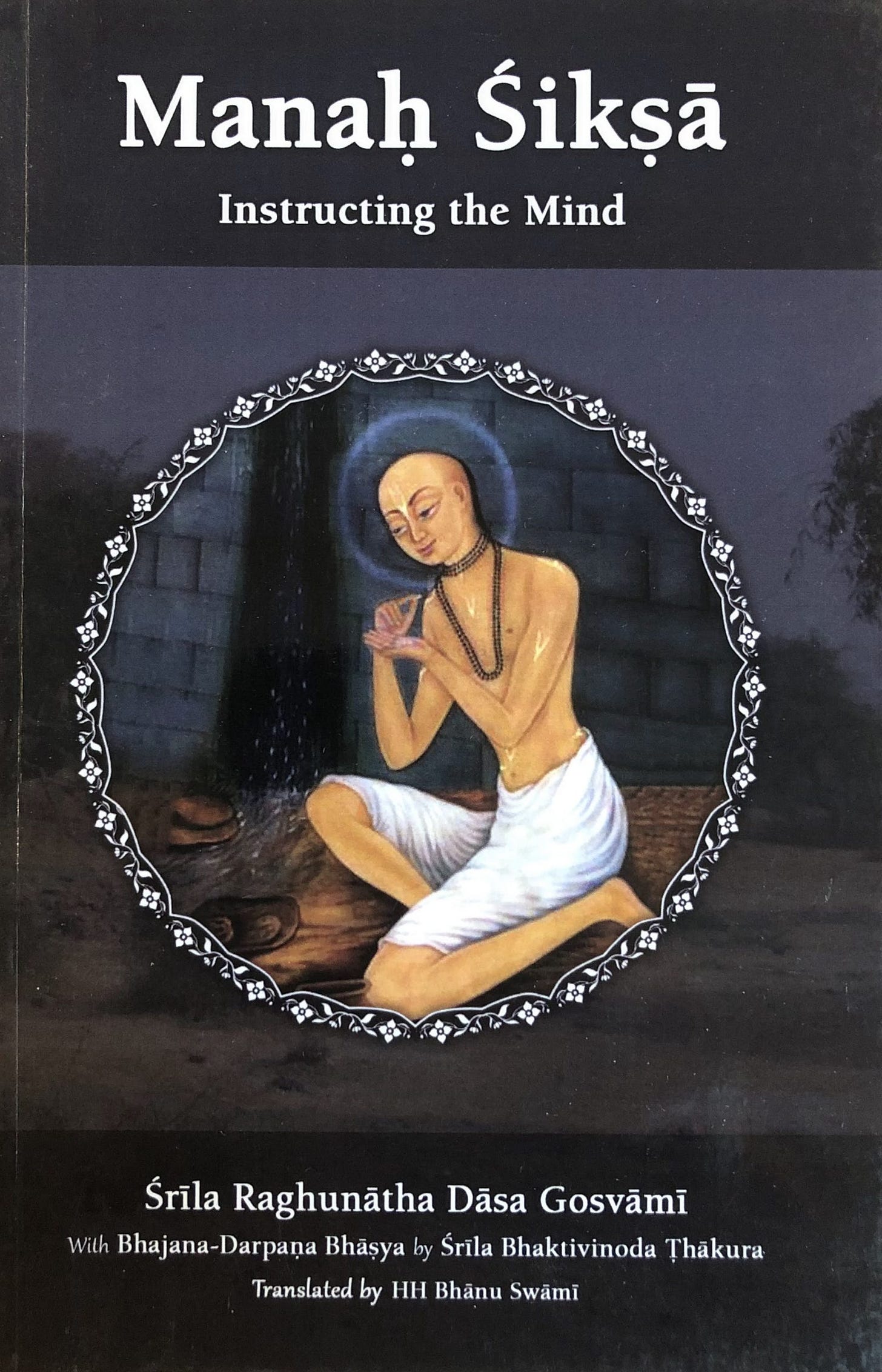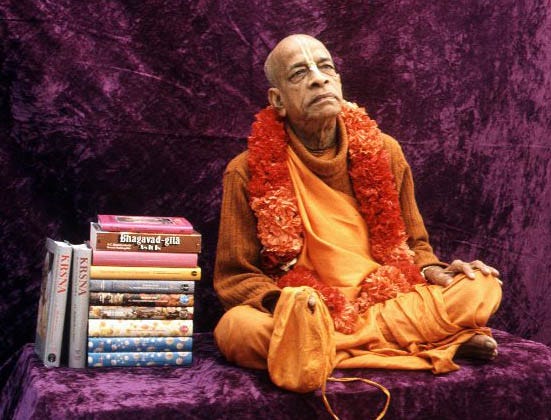The Psychology of Snoozing: Procrastination, Tamo-guṇa, and Transcendence
By Muchukunda Das
The humble snooze button. Few inventions are so small, so mundane, and yet so psychologically potent. Pressing snooze may seem like a harmless indulgence — five more minutes of rest. But beneath that sleepy gesture lies a tangle of psychological patterns, spiritual inertia, and inner rebellion. To explore the snooze phenomenon is to dive into the mind’s mechanics and the soul’s entanglement with matter.
This articles main target audience is myself. I've struggled with procrastination since forever! 🙃
Let’s unpack it from various angles — psychological, behavioral, and Vedic — and see what really happens when we hit snooze.
---
1. The Psychological Anatomy of Snoozing
From a mainstream psychological perspective, snoozing often reveals an underlying procrastination habit. We delay waking up not because we’re physically exhausted (though that plays a role), but because we are avoiding something — the demands of the day, the pressure of responsibilities, or facing our own inner doubts.
Procrastination itself is deeply misunderstood. It’s not simply laziness. In many cases, it’s a form of rebellion or a cry of confusion. One part of us knows what we should do, but another part resists, like a stubborn child ignoring the parent’s call.
In behavioral psychology, procrastination is seen as a failure of executive function: the prefrontal cortex says “let’s go,” but the limbic system, wired for comfort and survival, says “not yet.” Snoozing is that tug-of-war between our higher intention and our lower impulse.
Often, procrastination comes from fear — fear of failure, fear of success, fear of discomfort. By snoozing, we postpone the confrontation with life. It's a tiny, habitual way of saying, “I’m not ready yet,” which, over time, reinforces a narrative of powerlessness.
---
2. From the Vedic Lens: Tamo-Guṇa and the Poison of Inertia
In the Bhagavad-gītā and other Vedic scriptures, there’s a clear description of three modes of material nature: sattva (goodness), rajas (passion), and tamas (ignorance). Snoozing lives in the realm of tamo-guṇa — the mode of darkness, inertia, and illusion.
When we hit snooze, we are literally choosing sleep over wakefulness, illusion over awareness, comfort over duty. It is a microcosmic choice that reflects a macrocosmic condition: our soul trapped in illusion, refusing to rise.
The Bhāgavata Purāṇa says that tamas is the mode in which people oversleep, overeat, and waste time. These are not moral failures; they are energetic states. In tamo-guṇa, the soul forgets its original nature as a servant of Kṛṣṇa. It loses clarity, enthusiasm, and willpower.
To the Vedic mind, snoozing is not just a productivity issue. It is poison. Śrīla Prabhupāda was blunt: “Sleeping is death.” Every extra moment spent indulging the snooze button is like spiritually nodding off — one more layer of fog between the self and its purpose.
---
3. Approaches to the Mind: Ignore, Bash, or Beg?
In dealing with the mind — the very faculty responsible for snoozing — spiritual traditions offer different strategies.
Bhaktisiddhānta Sarasvatī Ṭhākura advised: “Every morning beat your mind with a broomstick. Every evening beat it with a shoe.” His point wasn’t cruelty; it was forceful rejection. The mind is a cunning saboteur and must be kept in check.
Raghunātha dāsa Gosvāmī, in Manaḥ-śikṣā, adopts a gentle but firm strategy — not bashing but instructing the mind with humility and prayer. He sees the mind as a friend gone astray, who must be lovingly redirected.
The modern psychological approach says: understand the mind. Get to the root. Is there trauma? Are there unmet needs? Do you need to heal or reframe your beliefs?
Srila Prabhupada’s approach is actually more radical: ignore the mind.
The Gītā teaches: manaḥ eva manuṣyāṇāṁ kāraṇaṁ bandha-mokṣayoḥ — the mind is the cause of bondage and liberation. But the solution isn't endless analysis. It's fixing the mind on Kṛṣṇa.
When the mind says “snooze,” we simply don’t listen. We don’t argue, we don’t reason. We just do what Kṛṣṇa wants us to do.
This is hard — because the mind is loud, persistent, and persuasive. But it’s simple — because it avoids entanglement. Like Arjuna, we rise not because we’ve figured it all out, but because Kṛṣṇa says, "Get up and fight."
---
4. Other Theories: Decision Fatigue and Identity Conflict
Some psychologists suggest decision fatigue plays a role. The more decisions we make, the more mentally exhausted we become. Snoozing is a way to delay decision-making, to give ourselves a temporary reprieve.
Others point to identity conflict. If your self-image is that of a disciplined, spiritual, high-achieving person, but you don’t feel that way internally, the dissonance creates avoidance. Snoozing is the crack where that contradiction leaks out.
We often fail to act because we no longer believe in our own word. The alarm rings, and instead of jumping up, we think: “I’ve said I’d get up before, and I didn’t.” The snooze button becomes a symbol of that fractured integrity.
---
5. Solutions: From the Bedroom to the Battlefield
What are the solutions?
Psychological: Make waking up easier — use smart alarms, put your phone across the room, build micro-habits. Address underlying fears and unresolved inner conflicts. Strengthen your “why.”
Spiritual: Wake up to serve, not to "start your day." Put a picture of Kṛṣṇa or your Guru on the wall. Offer your waking as an act of devotion. Get out of bed for Them, not for you.
Vedic: Rise before the sun. Bathe. Chant. Connect. Move your body out of tamo-guṇa before your mind has a chance to complain. The śāstras say, brahma-muhūrta — the early morning hours — are spiritually potent. Don’t miss the divine window.
And finally, the universal, time-tested truth:
Just do it.
Ignore the voice. Don’t argue. Don’t negotiate. Just do what must be done.
In a way, snoozing is a metaphor for the whole spiritual journey. We know what we need to do. But the mind says, “Not yet.” And we — little souls with infinite potential — press the button and roll over.
But somewhere within, we know the truth:
“Now is the time. The soul must rise.”
Hari bol.
Muchukunda Das
🕉️💤➡️🕊️










